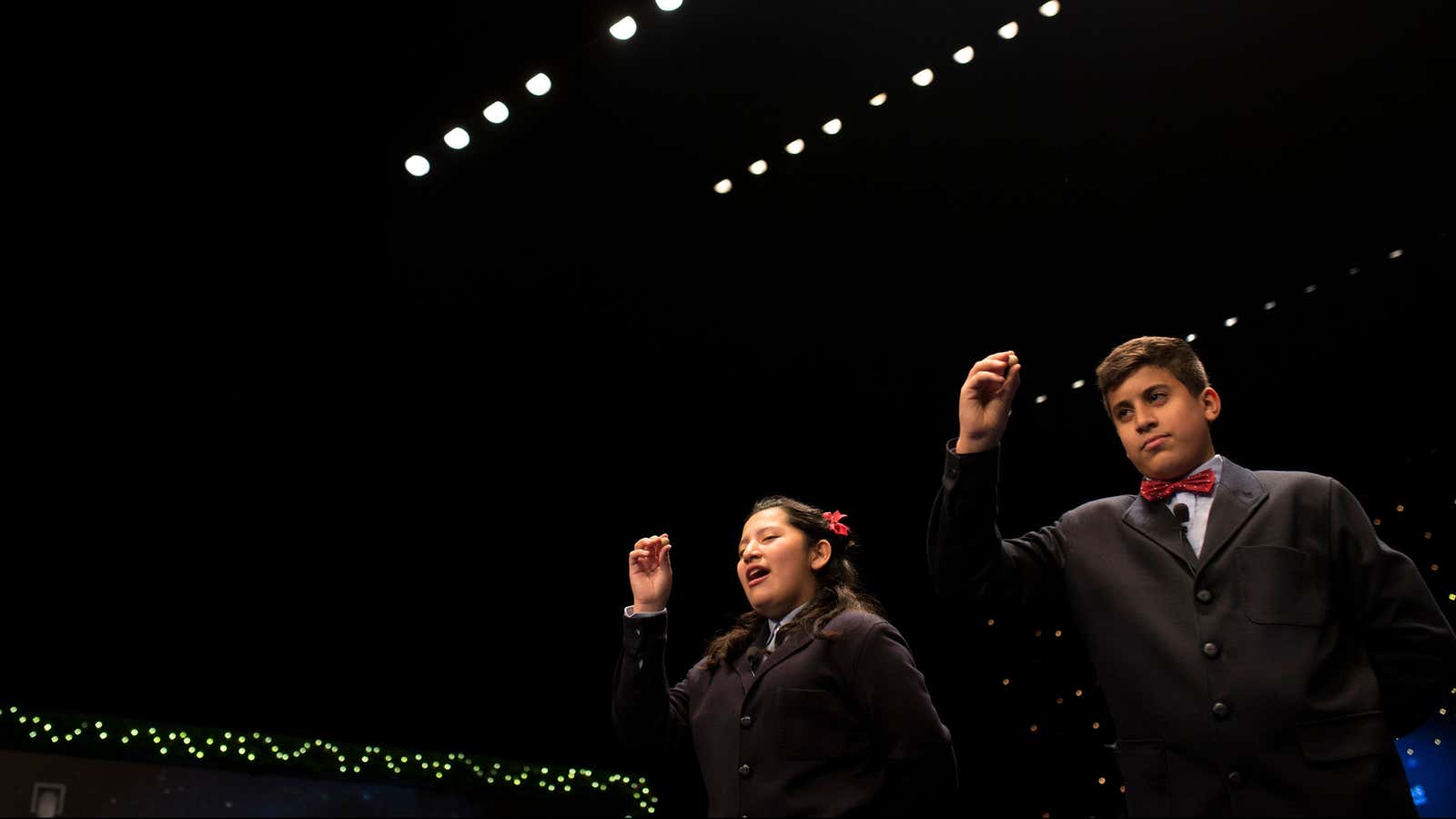Nothing stops the Spanish Christmas lottery.
Known officially as el Sorteo Extraordinario de Navidad and unofficially as El Gordo (the Big One), the lottery has happened every year since 1812. When the global flu pandemic decimated the country’s population in 1918 and 1919, survivors kept playing El Gordo. When the chaos of the Spanish Civil War forced the republican government to move the capital from Madrid to Valencia during the 1930s, the lottery moved with them. Dictator Francisco Franco suppressed all cultural traditions not considered intrinsically Spanish during his 36-year rule; El Gordo made the cut, along with flamenco dances and bullfights.
History is just one of the things that makes Spain’s holiday tradition so remarkable. Governments have been using lotteries to raise money since the second century BC, when China started selling tickets to raise money for public works. Spain’s is the second-oldest continuously-running lottery in the world (a fact impressive anywhere but the Netherlands, where De Lotto has been going strong since 1726).
But for a variety of reasons, Spain’s annual drawing—which will take place this Saturday (Dec. 22)—is better than any lottery, anywhere. Few countries have embraced state-sponsored gambling with as much passion and commitment as Spain, where a combination of big prizes, holiday cheer, and singing schoolchildren have made the annual draw an essential part of the Christmas experience.
This year’s lottery will dole out €2.38 billion to thousands of people, starting with little wins of €10 and leading to the grand prize of €4 million. In a time-honored but exceptionally complicated system, each pre-printed ticket is actually a perforated sheet of 10 identical sub-tickets, or décimos, each of which are sold for €20. When a winning number is drawn, the pot is divided evenly among the number’s 10 décimo holders, meaning that the grand prize will likely be shared among 10 people getting €400,000 each. Still. Not too shabby.
An estimated 75% of the Spanish population purchases Christmas lottery tickets, even those who would not bother playing the lottery during other, less festive parts of the year. People typically go in on tickets with friends, family, or colleagues. Being in on a décimo together has the camaraderie of a World Cup pool, or Final Four bracket.
“This year I’ve bought four tickets and sharing each of them: my friends from high school, my friends from college, my former co-workers, and my current co-workers,” said Juan Pérez, a 37-year-old investment professional from La Coruña who now lives in London. “Each of us buys one ticket and posts it in the WhatsApp group to be shared among the ones who decide to play.”
The most distinctive and inalterable feature of the televised Christmas draw is the participation of students from Madrid’s San Ildefenso school. The primary school dates back to the 16th century and was originally reserved for the orphans of public servants. Life expectancies for government workers and Spaniards in general have risen, fortunately, and orphanhood is no longer an admission requirement.
Every time a numbered ball is dispensed from the tumbler, two uniformed schoolchildren sing the ball’s number and the corresponding prize amount, in as dramatic a fashion as it is possible to sing a number.
This can take hours. A typical broadcast starts at 8 a.m. and ends around 1:30 p.m. The switch to euros in 2002 shortened the broadcast by about 10 minutes, as “one thousand euros,” for example, takes less time to sing than “one hundred and fifty thousand pesetas.”
The event takes place at Madrid’s Teatro Real opera house, where the stage is carpeted so the balls can’t roll far in case (God forbid) a child drops one. Ticketed spectators to the live drawing tend to come in costume and—judging by news interviews with audience members—alcohol is allowed.
But for the vast majority of people in Spain, El Gordo is a familiar, comforting background sound that immediately evokes memories of previous Christmases, with previous lottery kids singing away on the radio or television while relatives cook and chat.
“I don’t know anybody who doesn’t play in the Christmas lottery,” said Eduardo Gonzalez, 55, who works for a public utility in Madrid. “I remember when I was a kid the draw always took place during school holidays and even when you were having breakfast you could hear in the background the kids from San Ildefonso signing out loud the numbers of the draw.”
To give a US equivalent, “I guess its kind of like Thanksgiving Day football. It’s in the background, everyone knows about it, not everyone is paying attention,” said Jaime Barreiro, 35, a project manager in Madrid. “It’s a warm thing. Its something that’s been around forever. My mom used to listen to it on the radio with my grandparents. It’s the start of Christmas for us.”
